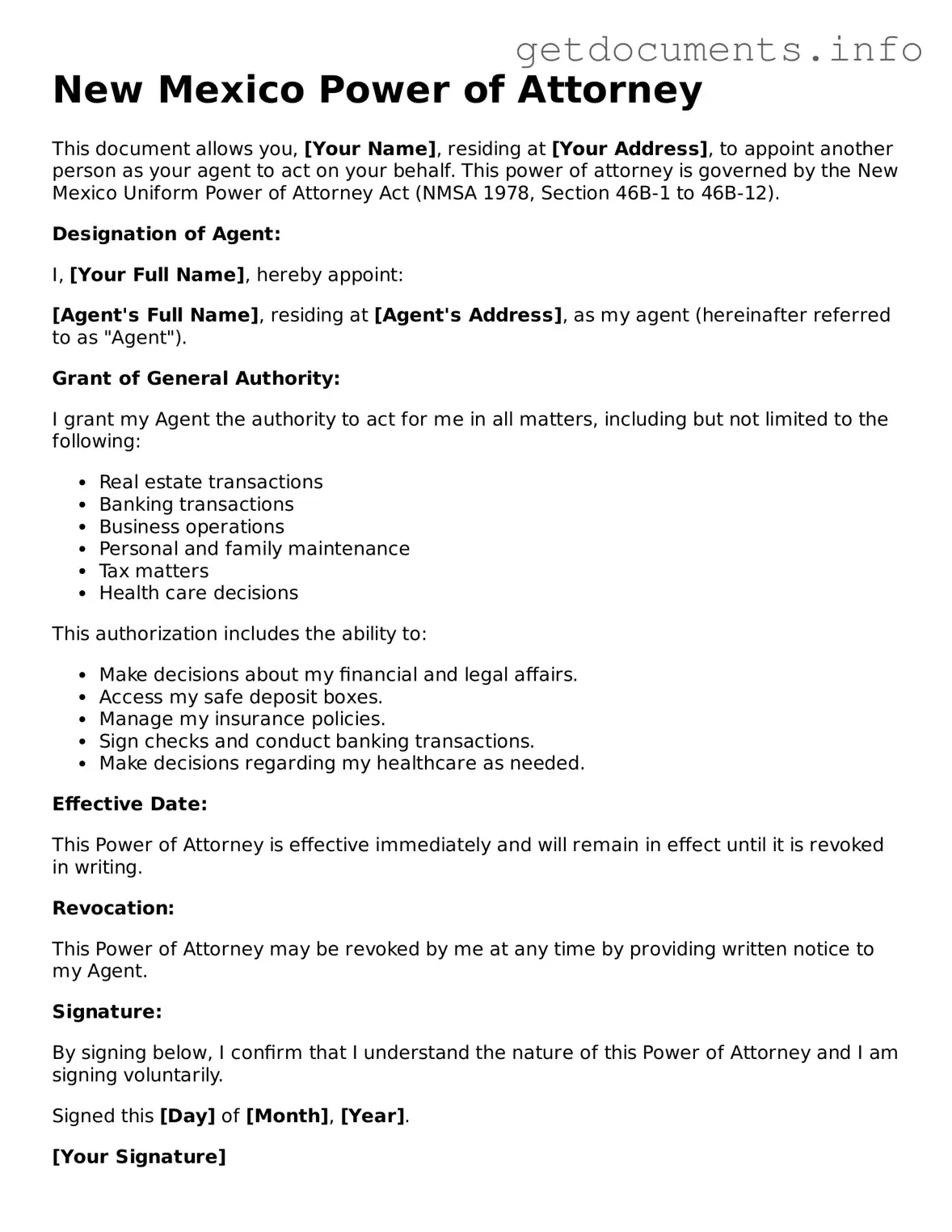Free Power of Attorney Template for New Mexico
The New Mexico Power of Attorney form is a legal document that allows one person to grant another the authority to make decisions on their behalf. This form can cover a variety of matters, including financial and medical decisions, ensuring that your wishes are respected even when you cannot communicate them yourself. To learn more and get started, fill out the form by clicking the button below.
Access Power of Attorney Editor

Free Power of Attorney Template for New Mexico
Access Power of Attorney Editor
Got places to be? Complete the form fast
Fill out Power of Attorney online and avoid printing or scanning.
Access Power of Attorney Editor
or
⇩ PDF File
